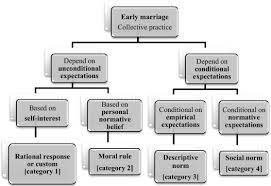In the Hausa community, early marriage has long been a traditional practice that holds significant cultural and social importance. However, it is crucial to understand the impact of early marriage on individuals and the community as a whole.
Early marriage forces many young girls are to drop out of school to assume household responsibilities, hindering their chances of pursuing higher education and limiting their future prospects. Lack of education can perpetuate a cycle of poverty and inhibit personal and societal development.
Child bride also faces numerous health risks due to their immature bodies being subjected to early childbirth. They are more prone to complications during pregnancy and childbirth, including obstetric fistula, maternal mortality, and early marriage exposes girls to emotional stress and also psychological challenges. These girls are often not mentally prepared for the responsibilities and pressures of marriage. The transition from childhood to married life can be overwhelming, leading to increased vulnerability to depression, anxiety, and other mental health issues.
Early marriage often results in limited decision-making power for girls within their households. They may not have the autonomy to make choices regarding their own lives, education, career, or even their own bodies. This lack of agency can contribute to a sense of powerlessness and dependence, limiting their personal growth and development.
Early marriage can have an adverse impact on the economic stability of families and the community. When girls marry at a young age, they often lack the skills, knowledge, and opportunities to contribute to the household income. This can perpetuate a cycle of poverty, as families struggle to sustain themselves financially.
Early marriage reinforces gender inequalities within the Hausa community. When girls marry early, they are unable to fully participate in society, pursue their dreams, and exercise their rights. This perpetuates the notion that women are solely meant for marriage and domestic duties, limiting their ability to engage in public life, decision-making processes, and contribute to the community.
Early marriage often leads to early and frequent pregnancies, which can have detrimental effects on both the mother and the child. Young girls’ bodies are not fully developed to bear children, resulting in increased health risks for both mother and child. Children born to young mothers are also more likely to face developmental challenges.
While early marriage may have deep cultural and social roots in the Hausa community, it is essential to consider the long-term impact it has on individuals and the community. It limits education opportunities, poses health risks, restricts decision-making power, hinders economic stability, reinforces gender inequalities, and impacts the well-being of both mothers and children.




No comments yet
Be the first to share your thoughts!